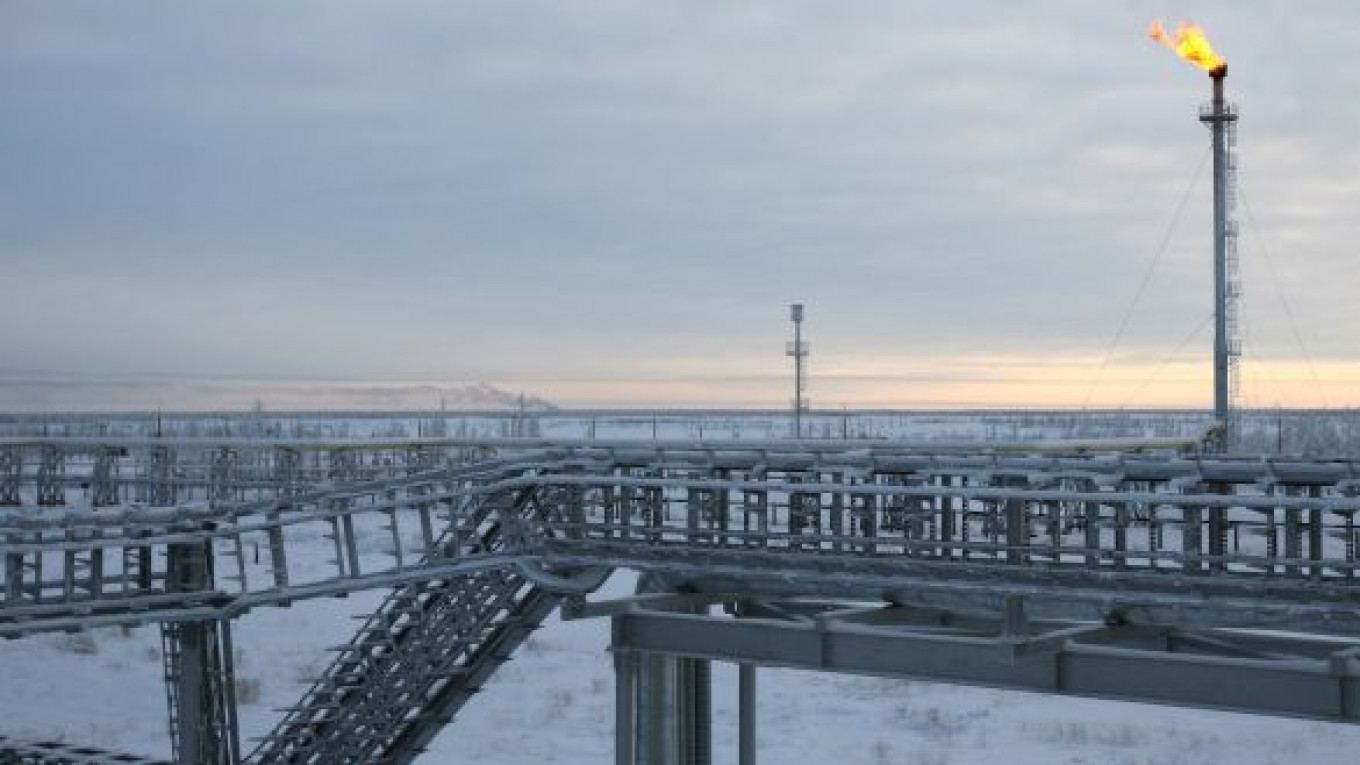The European Bank for Reconstruction and Development and the World Bank have allocated 1 million euros ($1.37 million) to commission a study of gas flaring in Russia, Azerbaijan, Kazakhstan and Turkmenistan.
The Norwegian consultancy Carbon Limits and in-country expert partners will carry out the study, with results to be unveiled next year, the banks said in an e-mailed statement.
Gas flaring involves burning natural gases that arise as a byproduct of oil extraction, but are not necessarily practical to reuse.
The study will identify opportunities to cut down on the practice, which is a major source of greenhouse gas emissions.
About 40 billion cubic meters of associated gas was flared in Europe and Central Asia last year, representing 30 percent of the worldwide total, the banks said.
The Natural Resources and Environment Ministry has won agreement from the Finance Ministry to hike charges for oil companies that flare more than 5 percent of their associated gas by a factor of 12 from 2012 and a factor of 25 from 2014, Vedomosti reported Tuesday.
The plan, which a natural resources ministry official said would reward companies that invest in using associated gas, has yet to be approved by other ministries.
The ministry had to back down from a proposal to hike the fines by a factor of 100 for oil fields with meters, and 1,000 for fields where the amount of associated gas is not measured, the paper reported.
Russian oil companies currently pay a total of about 340 million rubles ($11.4 million) in charges for excessive gas flaring, Vedomosti reported earlier, citing ministry figures. Rosneft and Gazprom are the worst offenders, flaring more than 40 percent of their associated gas.
Royal Dutch Shell is "hopeful" of reaching an accord next year with Gazprom, the world's biggest gas producer, Maarten Wetselaar, a Shell executive vice president, said Wednesday in Moscow, Bloomberg reported.
Deals for oil projects and about expanding the companies' Sakhalin-2 liquefied natural gas venture will be stand-alone and may include assets outside Russia, Wetselaar said.
Shell is also in talks with oil producer Rosneft about Arctic, Black Sea and onshore projects in the country, Wetselaar told reporters at the Energy Intelligence conference.
A Message from The Moscow Times:
Dear readers,
We are facing unprecedented challenges. Russia's Prosecutor General's Office has designated The Moscow Times as an "undesirable" organization, criminalizing our work and putting our staff at risk of prosecution. This follows our earlier unjust labeling as a "foreign agent."
These actions are direct attempts to silence independent journalism in Russia. The authorities claim our work "discredits the decisions of the Russian leadership." We see things differently: we strive to provide accurate, unbiased reporting on Russia.
We, the journalists of The Moscow Times, refuse to be silenced. But to continue our work, we need your help.
Your support, no matter how small, makes a world of difference. If you can, please support us monthly starting from just $2. It's quick to set up, and every contribution makes a significant impact.
By supporting The Moscow Times, you're defending open, independent journalism in the face of repression. Thank you for standing with us.
Remind me later.






